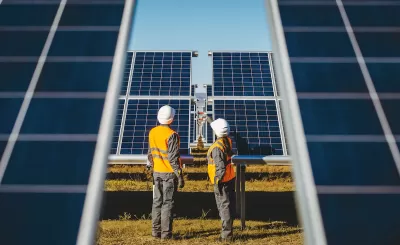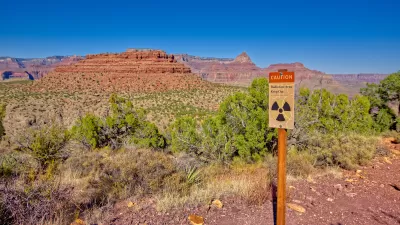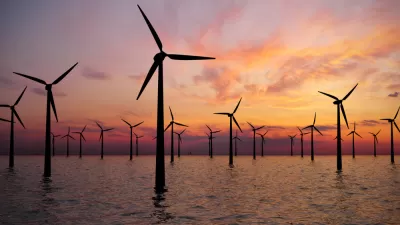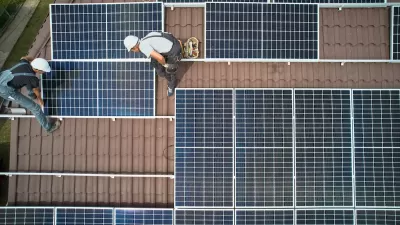The federal government announced a $20 billion investment to support low-interest loans for climate and clean energy projects.

A new ‘green bank’ network created by the Biden administration will provide low- or zero-interest loans to fund climate and clean energy projects, with a focus on historically underserved communities.
According to an article by Kristoffer Tigue in Inside Climate News, “Under the Environmental Protection Agency’s Greenhouse Gas Reduction Fund—also known as the country’s first national green bank—eight community development banks and nonprofit organizations will receive that federal funding to go toward rooftop solar installations, energy efficiency upgrades and other projects that help reduce greenhouse gas emissions.”
The program falls under the federal Justice40 initiative, which requires that 40 percent of benefits from certain federal programs go to disadvantaged communities. Carla Walker, director of environmental justice and equity for the World Resources Institute’s U.S. branch, calls the $20 billion investment “a crucial step toward addressing longstanding inequities and barriers to accessing much-needed capital for the communities that need it most.”
FULL STORY: White House Awards $20 Billion to Nation’s First ‘Green Bank’ Network

Planetizen Federal Action Tracker
A weekly monitor of how Trump’s orders and actions are impacting planners and planning in America.

Restaurant Patios Were a Pandemic Win — Why Were They so Hard to Keep?
Social distancing requirements and changes in travel patterns prompted cities to pilot new uses for street and sidewalk space. Then it got complicated.

Map: Where Senate Republicans Want to Sell Your Public Lands
For public land advocates, the Senate Republicans’ proposal to sell millions of acres of public land in the West is “the biggest fight of their careers.”

Maui's Vacation Rental Debate Turns Ugly
Verbal attacks, misinformation campaigns and fistfights plague a high-stakes debate to convert thousands of vacation rentals into long-term housing.

San Francisco Suspends Traffic Calming Amidst Record Deaths
Citing “a challenging fiscal landscape,” the city will cease the program on the heels of 42 traffic deaths, including 24 pedestrians.

California Homeless Arrests, Citations Spike After Ruling
An investigation reveals that anti-homeless actions increased up to 500% after Grants Pass v. Johnson — even in cities claiming no policy change.
Urban Design for Planners 1: Software Tools
This six-course series explores essential urban design concepts using open source software and equips planners with the tools they need to participate fully in the urban design process.
Planning for Universal Design
Learn the tools for implementing Universal Design in planning regulations.
Heyer Gruel & Associates PA
JM Goldson LLC
Custer County Colorado
City of Camden Redevelopment Agency
City of Astoria
Transportation Research & Education Center (TREC) at Portland State University
Camden Redevelopment Agency
City of Claremont
Municipality of Princeton (NJ)





























